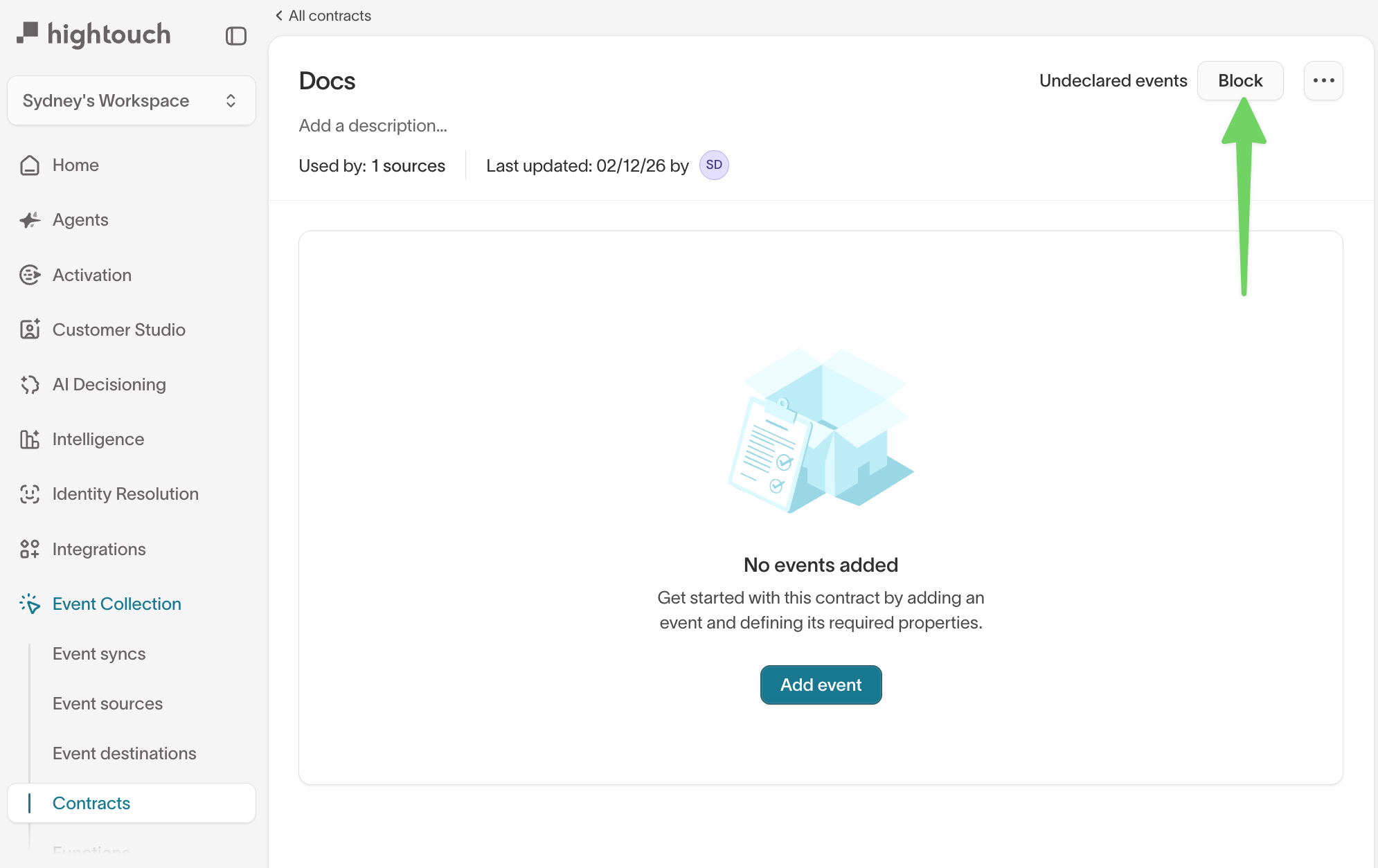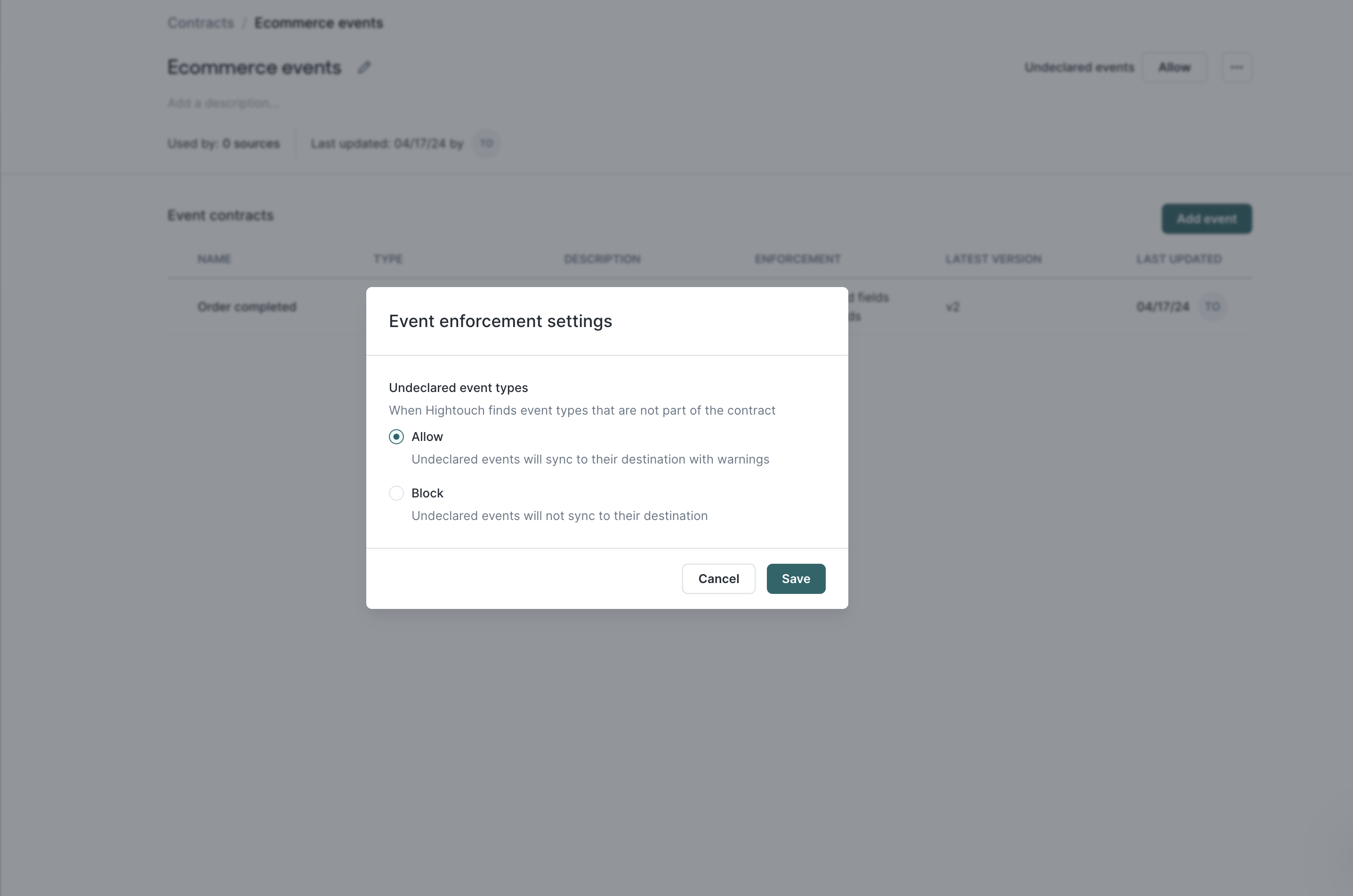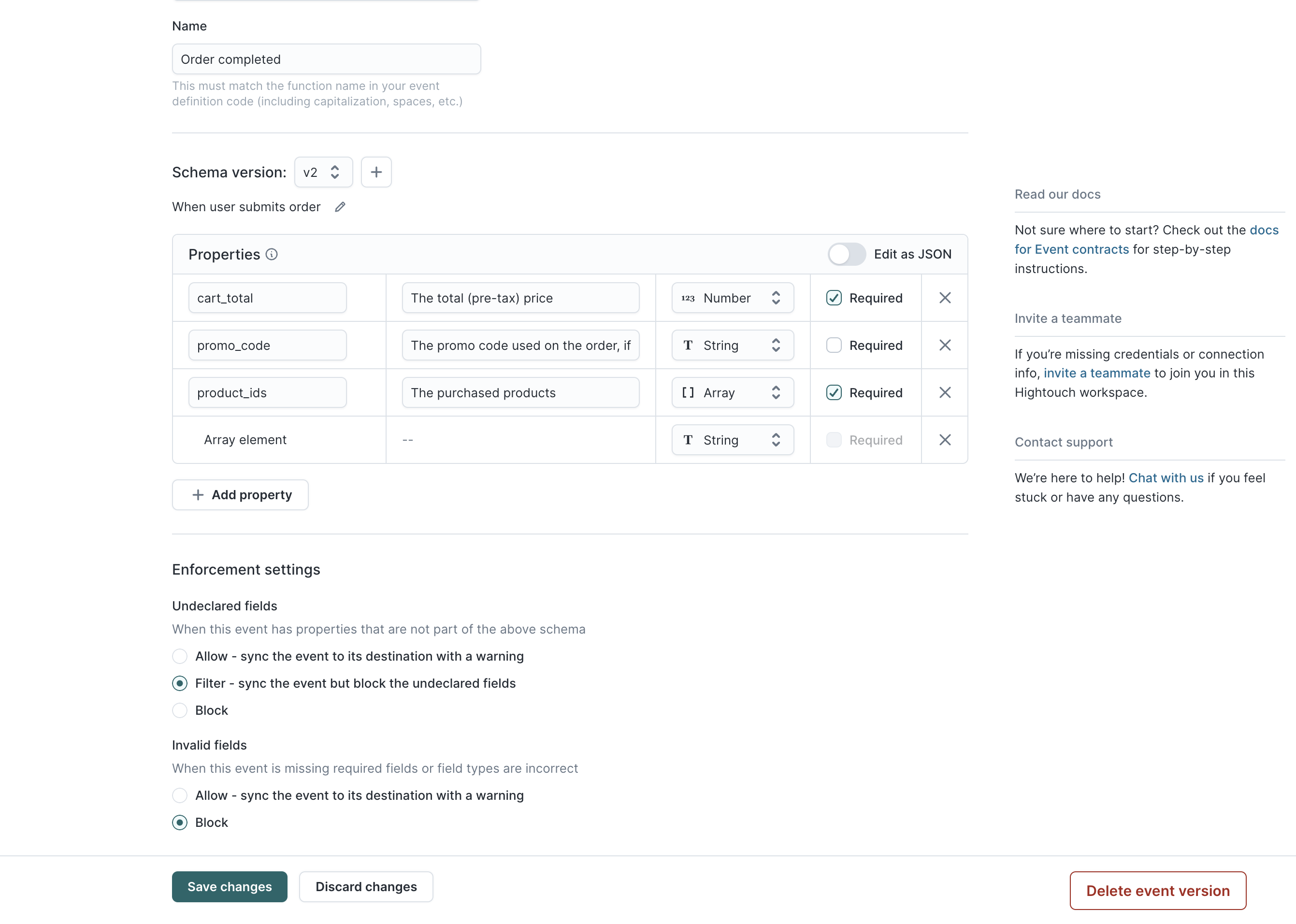Overview
A violation occurs when an event sent through an event source does not satisfy the contract applied to that source.
Violations help you identify incomplete, inconsistent, or unexpected event data before it impacts downstream tools.
Events can cause 3 different types of violations:
- An undeclared event violation occurs when a specific event is not
specified in the contract
- e.g.
Button Clickedevent is sent to Hightouch, but it is not in the E-commerce Events contract
- e.g.
- An undeclared field violation occurs when a field in an event is not
specified in the validation schema
- e.g.
user_namefield is sent to Hightouch in theOrder Completedpayload, but it is not specified in the validation schema
- e.g.
- A schema validation violation occurs when a field does not pass the schema
validation defined by JSON Schema rules
- e.g.
userIdfield is passed in as astringwhen the schema violation defines the field as typenumber
- e.g.
All violations are written to a separate event_violations table in your
destination, regardless of how violation enforcement is configured.
This table has the schema:
- payload: JSONB
- event_name: string (derived from payload)
- event_type: string (derived from payload)
- schema_version: string (derived from payload)
- has_undeclared_schema: boolean
- has_undeclared_fields: boolean
- has_schema_violated: boolean
- violations: string[]
Violation enforcement
Hightouch allows you to configure how to handle violations at both the contract and event level. Depending on the cleanliness of your current event tracking, you may want to allow violations to be written to your main event tables.
This table represents the different ways Hightouch can handle a violation. The bolded actions represent the default behavior.
| Schema validation | Undeclared field | Undeclared event |
|---|---|---|
| Allow | Allow | Allow |
| Block event | Block event | Block event |
| Omit fields |
Configure how to handle undeclared events at the contract level.


Schema violations and undeclared fields can be configured at an event-level on the event schema page.
